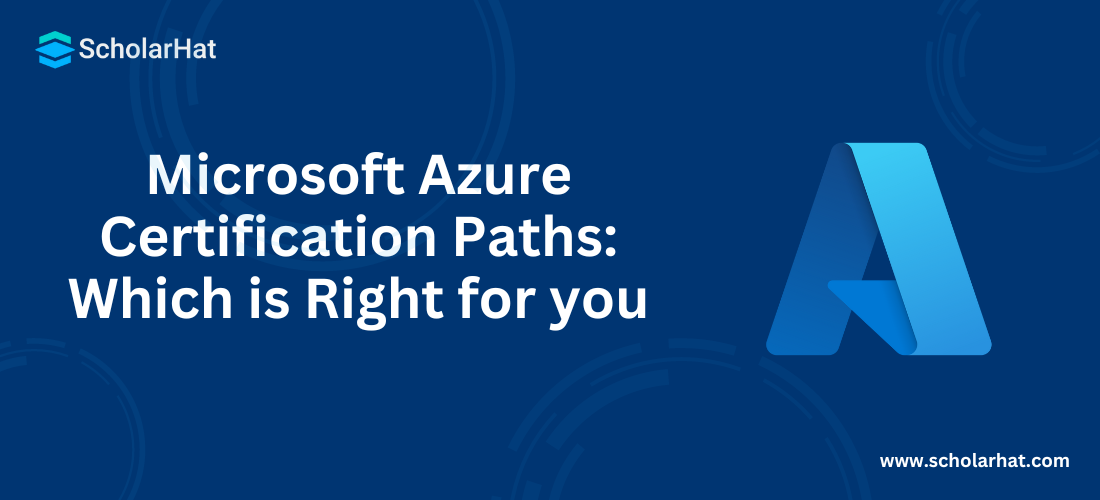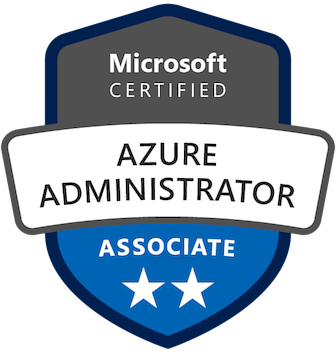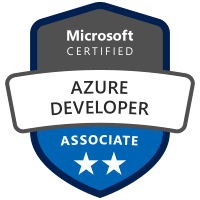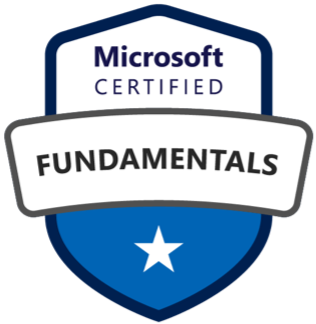Microsoft Azure Certification Paths: Which is Right for you
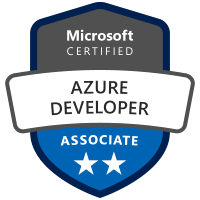
Azure Developer Certification Course (Az-204)
Microsoft Azure Certification Paths: An Overview
Do you want to be called a Microsoft Azure Certified Professional? Are you confused among so many Azure certification paths? Azure certification is a valuable asset for any IT professional. It enhances your Azure skills and knowledge and can help you to land a job or earn a promotion. In this Azure Tutorial, we'll help you choose the right one for you. Talking about that, you must not leave the opportunity to be an expert in Azure fundamentals through our step-by-step Azure Certification Training.
Why should you learn Microsoft Azure?
There are many reasons we can give that you should start learning Microsoft Azure right now:
- High Demand- Azure skills are in high demand right now in the IT industry because of the rapid increase in the use of cloud computing.
- Career Opportunities- By learning Azure, you open doors for various career paths in cloud architecture, administration, DevOps, and many more.
- Scalability and Flexibility- Azure increases scalability and flexibility in building, deploying and managing applications.
- Certification Pathways- Azure has many different certification programs that validate expertise in various roles which also enhances credibility and career prospects.
Microsoft Azure Certification Paths: Which is Right For You
To know which Microsoft Azure Certification Paths is the right one for you, the first step is to assess your Azure experience and expertise.
- For Beginners: If you're new to Azure, then you'll want to start with the Azure Fundamentals certification. This entry-level credential will give you a solid foundation in Azure concepts and terminology. To earn this certification, you'll need to pass exam: AZ-900.
- For Dev/Admin: If you're already using Azure, but want to deepen your understanding, then consider pursuing an Associate-level certification such as Azure Administrator or Azure Developer. These certifications require passing one or more exams that test your ability to implement Azure solutions. The Azure Administrator Associate certification is a good choice if you want to prove your ability to manage Azure resources. To earn this certification, you'll need to pass exam: AZ-104. The Azure Developer Associate certification, on the other hand, is designed for developers who want to show their skills in building applications on Azure. This certification requires passing Az-2014 exam.
- For Azure Professionals: if you're an experienced Azure professional looking to take your career to the next level, then you should pursue a Specialist-level certification. These credentials demonstrate your ability to solve complex Azure challenges and are highly sought-after by employers. There are currently four Specialist-level certifications: Azure DevOps Engineer, Azure Security Engineer, Azure Solutions Architect. Each certification requires passing one or more expert-level exams.
Read More - Azure Interview Questions for Experienced
If you're not sure which path is right for you, consider taking a look at Microsoft's Role-based Certification Paths. These paths will help you match your skills and interests with the right Azure certification. No matter which path you choose, Azure certification can help you take your career to the next level. So, which Azure certification path is right, depends on your Azure experience and expertise. Start by assessing your skills, then choose a path that will help you meet your goals.
Azure Certification Paths
The latest role-based Azure certifications set up a learning path ranging from the Azure Fundamentals level to Specialty level Certifications. These learning paths are extremely useful for those candidates who intend to specialize in a specific domain of Azure. Moreover, these learning paths not just assist you to pass the Azure certification exams but also enable you to authenticate your skills in real-world Cloud environments. This is because the exams include even the trickiest possible questions that aptly judge the candidates’ proficiency in Azure.
The following list highlights all the Microsoft Azure Certification Paths:
Fundamentals-Level Certifications
- Microsoft Certified Fundamentals (AZ-900)
- Microsoft Certified Azure Data Fundamentals (DP-900)
- Microsoft Certified Azure AI Fundamentals (AI-900)
- Microsoft Security, Compliance, and Identity Fundamentals Azure (SC-900)
Associate-Level Certifications
- Microsoft Certified: Azure Administrator Associate (AZ-104)
- Microsoft Certified: Azure Developer Associate (AZ-204)
- Microsoft Azure Data Scientist Associate (DP-100)
- Microsoft Azure Data Engineer Associate (DP-203)
- Microsoft Certified: Azure Database Administrator Associate (DP-300)
- Microsoft Certified: Azure Security Engineer Associate (AZ-500)
- Microsoft Certified: Azure AI Engineer Associate (AI-102)
- Microsoft Data Analyst Associate (DA-100)
Expert-Level Certifications
- Microsoft Azure Solutions Architect Expert (AZ-305)
- Microsoft Certified: DevOps Engineer Expert (AZ-400)
Specialty-Level Certifications
- Microsoft Certified: Azure IoT Developer Specialty (AZ-220)
- Microsoft Certified: Azure for SAP Workloads Specialty (AZ-120)
- Microsoft Certified Azure Cosmos DB Developer Specialty (DP-420)
Summary
If you want to explore the vast field of Microsoft Azure and successfully work in related job roles, it is recommended to obtain the corresponding Azure Certifications. To eliminate confusion and pick up the most appropriate certification, the discussed Microsoft Azure Certification path proves to be extremely useful. It encompasses all the latest Microsoft Azure Certifications.
FAQs
Q1. What is the order of Azure certification?
- Foundational Level
- Associate Level
- Expert Level
- Specialty Certification
Q2. How many types of Azure certifications are there?
- Fundamental Certifications
- Role-Based Associate Certifications
- Role-Based Expert Certifications
- Specialty Certifications
Q3. Which Azure certification is best?
Q4. Which Azure certification is free?
Take our free azure skill challenge to evaluate your skill

In less than 5 minutes, with our skill challenge, you can identify your knowledge gaps and strengths in a given skill.

